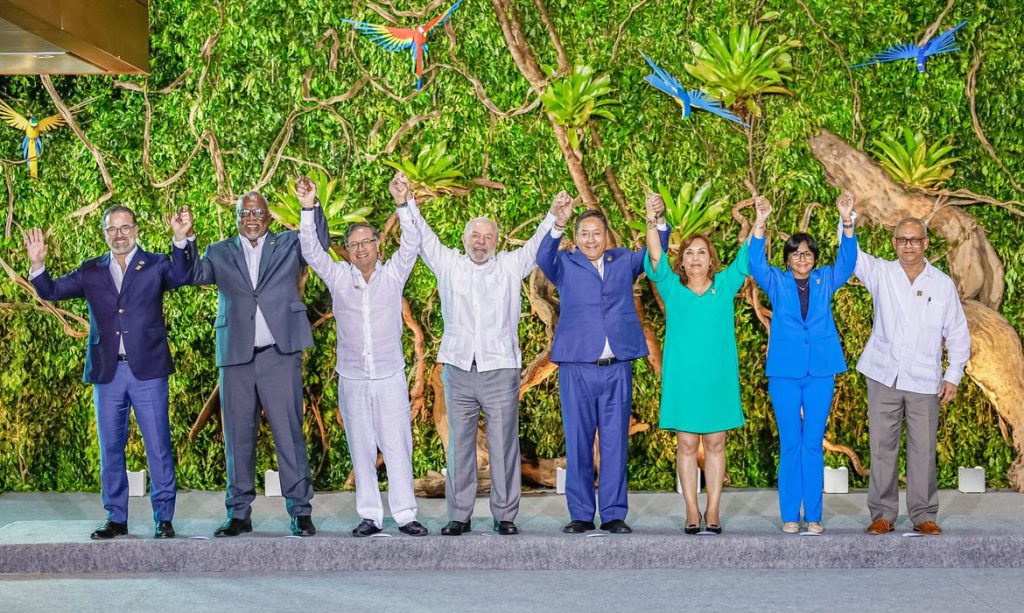
Belém (PA), 08.08.2023 – President Lula participates in the meeting of the Heads of State and Government of the signatory countries of the Amazon Cooperation Treaty (TCA), in Belém (PA). Photo: Ricardo Stuckert/PR
BRAZIL-
The Belém Declaration, signed on Tuesday at the Amazon Summit by the eight countries that are home to the rainforest, had an optimistic tone, after all, for the first time, there is a joint agenda between Brazil, Bolivia, Colombia, Ecuador, Guyana, Peru, Suriname and Venezuela for the preservation of the Amazon and sustainable development in the region. However, there is no definition of resources or concrete measures to combat environmental degradation in the biome.
The Belem Declaration contains 113 cross-cutting objectives and principles, committed by the signatory countries. ACTO will play a central role in the implementation of the new Amazon cooperation agenda.
The Brazilian Ministry of Foreign Affairs made the full Declaration public.
The document only highlights “the urgency of agreeing on common goals for 2030 to combat deforestation, eradicate and halt the advance of illegal natural resource extraction activities and promote land management approaches and the transition to sustainable models, with the ideal of achieving zero deforestation in the region”.
Among the commitments presented is the adoption of cross-cutting principles for the implementation of the Declaration, “which include the protection and promotion of human rights; the active participation and promotion of the rights of indigenous peoples and local and traditional communities; gender equality; the fight against all forms of discrimination; based on an intercultural and intergenerational approach”.
The document expressed the urgent need for regional awareness and cooperation to avoid the so-called “point of no return” in the Amazon, a term used by experts to refer to the point at which the forest loses its capacity for self-regeneration due to deforestation, degradation and global warming.
The Brazilian government has pledged to set up the International Police Cooperation Centre in Manaus to integrate the police forces of the eight countries. It also plans to establish an Integrated Air Traffic Control System to combat illicit air traffic, drug trafficking and other crimes in the region.
Several bodies will be created within ACTO. These include the Amazon Indigenous Peoples Mechanism; the Amazon Intergovernmental Technical-Scientific Panel, which will involve governments, researchers, civil society, indigenous peoples, and local and traditional communities.
Sources: https://agenciabrasil.ebc.com.br; CNN
